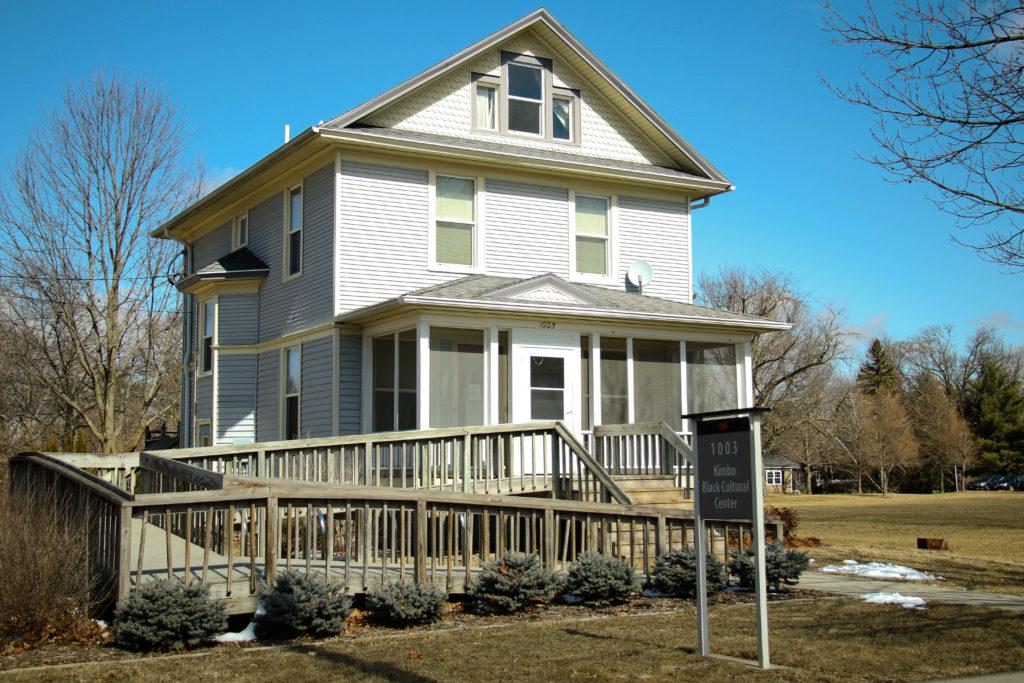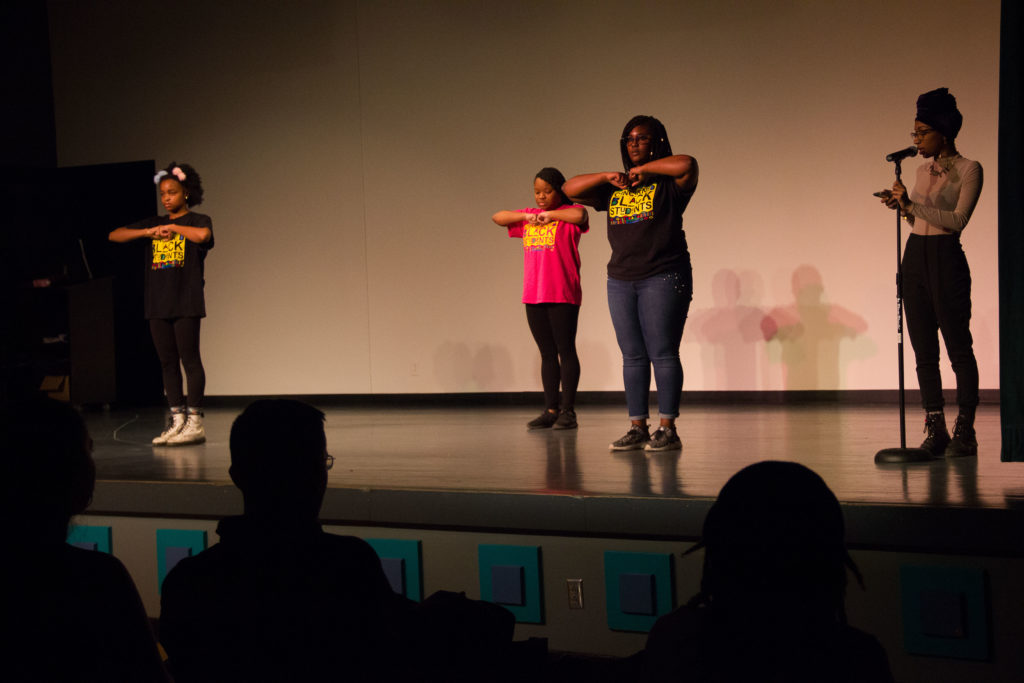After discussions with administrators, the BCC monitors have stepped down from their positions to temporarily close the BCC. Conner, Vice President of Student Affairs, has managed the BCC’s closure, but did not respond to The S&B’s inquiry for an interview. The former monitors have declined all interview requests and would not like their names to be mentioned in the article.
In February of this year, school administrators ceased independent student activity in the Conney M. Kimbo Black Cultural Center (BCC), indicating that the College would be reevaluating the resource center’s functions. Administrators did not issue an official statement to the College community at large, notifying only the leaders of Concerned Black Students (CBS) and the African Caribbean Student Union (ACSU) to relay the message to members of their organizations.
Starting on March 5, 2018, any student who wishes to enter the BCC must send a request to Conner and Director of Intercultural Affairs Maure Smith-Benanti and Assistant Director of Cultural Affairs Jordan Brooks. The request must be sent two weeks in advance of the intended date of use. The current process deviates from the BCC’s normal mode of operation, in which any student may enter and use the BCC under the supervision of BCC student monitors who live there.
Processes to rebrand the BCC will start with what Smith-Benanti describes as an “exploratory board” to decide how the BCC should function in the future. The board will consist of representatives from Student Affairs and the Office of Diversity and Inclusion, such as Smith-Benanti, Conner and Brooks, SGA executives, interested faculty of color and chosen Black student leaders from Concerned Black Students (CBS) and African Caribbean Student Union (ACSU). In the meantime, Conner sent an email to faculty of color encouraging them to have their office hours in the BCC to keep the space occupied. CBS leader Simonne Carlton ’18 has chosen CBS representatives to serve on the board with herself, but has not heard anything from administrators about next plans or the potential faculty involved with the board.
Students believe that the closure of a resource center meant for marginalized Black students represents a lack of institutional support for Black people in the College community.
“I think what makes the situation seem more scary and ominous is that the administration appear very hands-off,” Carlton said. “If [administration personnel are not] Intercultural Affairs, they don’t want to talk or be directly involved. But if this is a community-wide conversation that needs to happen, why aren’t they talking to students with concerns? It makes no sense if this is a problem that we need to access for the College community. … Why are you not answering my email, or just say you don’t want to talk about this instead of leaving students in the dark.”
After not receiving what they believed to be an adequate response from administrators, a group of Black students aired their grievances to SGA’s Campus Council on Feb. 28. SGA executives discouraged discussions on the closure of the BCC at Campus Council, citing confidentiality of “conduct violations” at the house. SGA officials did suggest that a resolution in support of efforts to open the BCC and console the concerned could be made in the meantime.
The move to repurpose the BCC comes in response to allegations of misconduct that occurred in the building during campus-wide events, as well as disagreements between the monitors over questions of the BCC’s use. Administrators have stated that such incidents occurred due to the lack of proper institutional oversight.
“[The house is] four blocks [away] so I don’t know if that’s part of it — that it’s situated on the edge, or if it has not had oversight,” Smith-Benanti said. Some members of the administration fear that not enough Black students go to the space and too many parties happen there.

“In my view, the BCC should exist to engage, to empower, to encourage and support people who are Black in the college community. In other places that I have been, Black cultural centers [have] been a vibrant, active place where people are going and having conversations and studying. … I would say that it hasn’t served all of our Black students, faculty and staff in a way that I think the whole center was conceived of and demanded and intended in the first place,” Smith-Benanti said.
However, Carlton cites many instances in which the BCC has served Black students: from hosting crawfish boils to serving as a study space, the BCC has been a center for students to engage with other Black students at any time, thanks to the live-in monitors and home-like structure of the center. Carlton also argued that it also is the responsibility of the administration to make sure that students understand their access to the BCC, considering that Intercultural Affairs and Diversity and Inclusion typically aim to promote and institutionalize resources to students with marginalized identities.
“I like how unique the space is [and] how we run our cultural center because it’s specific to our own Grinnell experience. They’re able to escape the mental hula hoops they have living on campus and they can go to this space where it’s secluded and out of the way. It feels like an off-campus experience while … simultaneously being on campus. The escape is more in the form of what black students can do when they go to the BCC … where black students can be en masse in a way that doesn’t happen with CBS and ACSU. It’s not so much of an escape of the trials of being around other white students. It’s a safe space to go to regularly and freely regardless of the hours it will always be open and find some peace,” Carlton said.
The focus on questions of conduct and personal disagreements do not recognize attempts by students to improve the BCC over the years, according to Carlton and other students close to the issue. Among other efforts, students have asked for more proper resources for BCC monitors to lead effectively, such as receiving CA training if the space were to remain a place to live, and training on conflict resolution and mediation. To them, the administration did not seem to take their suggestions seriously prior to the BCC’s closure.
“There’s a systemic lack of care administration gives to Black students specifically, but … the intercultural office, as it runs now, is relatively new. There was no one with direct oversight. They were swamped, they had other responsibilities, so they created the Office of Intercultural Affairs. … The issue is so large and I don’t think it’s just on intercultural affairs and students, it’s on all of us, it’s on the Grinnell community to work on what it means to have a safe space for Black students,” Carlton said.
Smith-Benanti said she believes that students should not have to act alone as BCC monitors, arguing that the onus falls unto the administration to promote and provide engagement, empowerment and support for students with marginalized identities.
“Sometimes people go to centers looking for resources that I don’t think students should have to be prepared to provide. Your education is your goal. If you look at what our peer institutions do, they are not student-run spaces, they are components that are student-run,” Smith-Benanti said.
In response, Carlton pointed out that CAs also have a large responsibility to care for students’ needs. Considering that the BCC only came out of student demands to the administration, it is integral that the BCC continues to have a strong body of student leadership.
“I like the idea of the administration being more accountable for the wellbeing of all the students but would you consider CAs having a burden for taking on that responsibility? If that’s the case, why do they exist? If we’re going to have the space for students to live there, why are they not trained like CAs?” Carlton asked.
Although the board has not met, concerned students have drafted documents to share with administrators about what they believe the BCC should do and why the BCC is important to the college community. Alumni have also contacted the College urging them to reopen the BCC and to work with students. There has been no set date for the board to meet on the issue, or when a campus-wide statement from the administration will be sent out.




























































